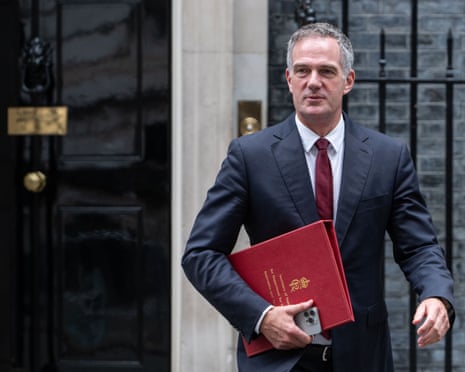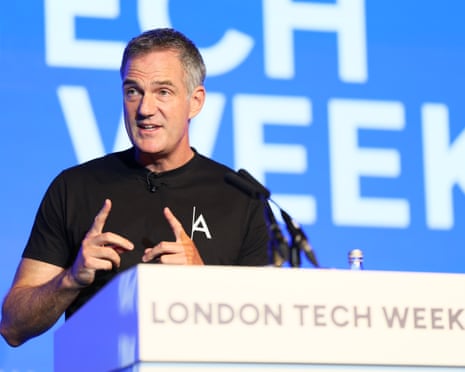UK Workers Must Adopt AI to Stay Competitive, Urges Government Minister
Workers in the UK are encouraged to transform their apprehension about AI into enthusiasm by actively experimenting with the technology, as failing to do so may leave them behind those who have embraced it, according to the technology secretary. Peter Kyle urged employees and businesses to “act now” to familiarize themselves with AI, noting that overcoming the generational divide in its usage requires only two and a half hours of training.
The advent of innovations like ChatGPT has sparked a surge in investment in AI technologies, yet it also raises concerns that numerous jobs across various sectors, including law and financial services, could be impacted. However, Kyle asserted, “Most people are approaching this with trepidation. Once they start [using AI], it turns to exhilaration because it is far more straightforward than many realize, and often more rewarding than expected.”
After meeting with leaders from tech companies to discuss a new initiative aimed at training 7.5 million UK workers—representing one-fifth of the entire workforce—in AI by 2030, Kyle expressed optimism. This training will be supported by major firms such as Google, Amazon, and BT. He stated, “Every person currently in employment is capable of acquiring the skills needed for the economy in the next five years.” He added, “The optimistic perspective is that if you act now, you will flourish in the future. If not, some may get left behind, which is my biggest concern.”
Kyle highlighted a notable generational gap in AI usage, revealing that individuals over 55 use AI half as often as those over 35. To bridge this divide, he indicated that just two and a half hours of training would suffice. “There’s no need for training in quantum physics,” Kyle remarked. “People need to learn the basics of AI, how to interact with it, and explore its potential within their workplaces.”
Keir Starmer, the prime minister, recognized earlier this week that public skepticism exists regarding AI and the fear of job loss associated with it. During London Tech Week, he emphasized the government’s commitment to demonstrating how technology can “create wealth in your community, generate good jobs, and significantly enhance public services.” Recent polling data revealed that individuals in English-speaking countries, including the UK, US, Australia, and Canada, are more apprehensive about AI’s rise compared to their counterparts in the largest EU economies.
Projections on AI’s impact on jobs vary significantly. The Organisation for Economic Co-operation and Development has warned that AI could lead to job losses in skilled fields like law, medicine, and finance. The International Monetary Fund estimates that 60% of jobs in advanced economies such as the US and UK are vulnerable to AI, with half of these roles potentially facing negative effects. Conversely, the Tony Blair Institute has advocated for the widespread adoption of AI, arguing that while the technology may result in job losses in the private sector, it will also create new positions.
Kyle expressed a readiness to reset the conversation surrounding AI and copyright following opposition to the government’s proposed changes to copyright laws in the House of Lords. The data bill, which has faced resistance regarding proposals to allow AI companies to utilize copyrighted materials without permission for product development, has finally passed as the lords did not submit further amendments related to copyright. “I approach this with humility and reflect on what I could have managed better in this process,” Kyle acknowledged. He committed to moving forward with a renewed focus on ensuring fair rewards and opportunities for creators in the digital age, similar to those they have enjoyed throughout the analogue era, while collaborating with the AI industry.







